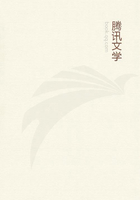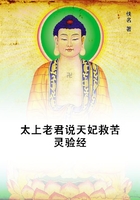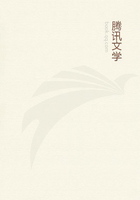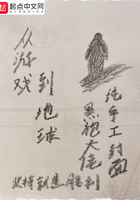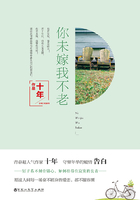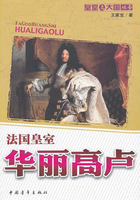The abuses that existed in the Irish Church at this period arose mainly from the enslavement of the Church, and they could have been remedied from within even had there been no unconstitutional revolution. As a matter of fact those who styled themselves Reformers succeeded only in transferring to their own sect the main sources of all previous abuses, namely, royal interference in ecclesiastical affairs and lay patronage, and by doing so they made it possible for the Catholic Church in Ireland to pursue its mission unhampered by outside control. It ought to be borne in mind that the faults of certain individuals or institutions do not prove that the whole organisation was corrupt, and that if there were careless and unworthy bishops, there were also worthy men like the Blessed Thaddeus MacCarthy of Cloyne, who though driven from his diocese by the aggression of the nobles, was venerated as a saint both in Ireland and abroad. The great number of provincial and diocesan synods held in Ireland during the period between 1450 and 1530 makes it clear that the bishops were more attentive to their duties than is generally supposed, while the collections of sermons in manuscript, the use of commentaries on the Sacred Scriptures and of concordances, the attention paid to the Scriptures in the great Irish collections that have come down to us, and the homilies in Irish on the main truths of religion, on the primary duties of Christians, and on the Lives of the Irish Saints, afford some evidence that the clergy were not entirely negligent of the obligations of their office. Had the clergy been so ignorant and immoral, as a few of those foisted into Irish benefices undoubtedly were, the people would have risen up against them. And yet, though here and there some ill-feeling was aroused regarding the temporalities, probates, fees, rents, rights of fishing, wills, etc., there is no evidence of any widespread hostility against the clergy, secular or regular, or against Rome. The generous grants made to religious establishments, the endowment of hospitals for the poor and the infirm, the frequent pilgrimages to celebrated shrines in Ireland and on the Continent, the charitable and religious character of the city guilds, and above all the adherence of the great body of the people to the religion of their fathers in spite of the serious attempts that were made to seduce them, prove conclusively enough that the alleged demoralisation of the Irish Church is devoid of historical foundation.
Nor could it be said that the Irish people at this period were entirely rude and uncultured. Though most of their great schools had gone down, and though the attempts at founding a university had failed, learning had certainly not disappeared from the country.
Clerics and laymen could still obtain facilities for education at the religious houses, the cathedral and collegiate churches, at the schools of Irish law and poetry, and from some of the learned teachers whose names are recorded in our Annals during this period. Many of the clerics, at least, frequented the English universities or the universities on the Continent. During the fifteenth and sixteenth centuries one can point to several distinguished Irish scholars such as O'Fihely, the Archbishop of Tuam, who was recognised as one of the leading theological writers of his day, Cathal Maguire the author of the Annals of Ulster, Bishop Colby of Waterford, the author of several commentaries on Sacred Scripture, the well-known Carmelite preacher and writer Thomas Scrope, Patrick Cullen Bishop of Clogher, and his arch-deacon Roderick O'Cassidy, and Philip Norris, the determined opponent of the Mendicants, and the Dominicans John Barley, Joannes Hibernicus, and Richard Winchelsey.[30] The catalogue of the books contained in the library of the Franciscan convent at Youghal about the end of the fifteenth century affords some indication of the attitude of the monastic bodies generally towards education and learning. In addition to the missals, psalteries, antiphonies, and martyrologies, the convent at Youghal had several copies of the Bible together with some of the principal commentaries thereon, collections of sermons by well-known authors, several of the works of the early Fathers and of the principal theologians of the Middle Ages, the Decrees of Gratian, the Decretals and various works on Canon Law, spiritual reading-books, including the life of Christ, and works on ascetic theology, the works of Boetius and various treatises on philosophy, grammar, and music, and some histories of the Irish province of the Franciscans.[31]
Similarly the library of the Earl of Kildare about 1534 contained over twenty books in Irish, thirty-four works in Latin, twenty-two in English and thirty-six in French,[32] while the fact that Manus O'Donnell, Prince of Tyrconnell, could find time to compose a Life of St. Columba in 1532, and that at a still later period Shane O'Neill could carry on his correspondence with foreigners in elegant Latin bears testimony to the fact that at this period learning was not confined to the Pale. Again it should be remembered that it was between the thirteenth and sixteenth centuries that the great Irish collections such as the Book of Lecan, the Book of Ballymote, the Leabhar Breac, the Book of Lismore, etc., were compiled, and that it was about the same time many of the more important Irish Annals were compiled or completed, as were also translations of well-known Latin, French, and English works.[33]
----------
[1] Hardiman, /A Statute of the 40th Year of Edw. III./, p. 4.
[2] /State Papers, Henry VIII./, vol. ii., pp. 1-31 (/State of Ireland and plan for its Reformation/).
[3] Hardiman, op. cit., pp. 46-54.
[4] Theiner, /Vetera Monumenta Hibernorum/, etc., pp. 16, 23.
[5] /Calendar Pap. Documents/, an. 1254.
[6] Hardiman, op. cit., pp. 47-9.
[7] De Burgo, /Hibernia Dominicana/, p. 75.
[8] /State Papers Henry VIII./, xiv., no. 1021.
[9] Mason, /The History and Antiquities of ... St. Patrick's, Dublin/, 1820, p. xviii.
[10] /De Annatis Hiberniae/, vol. i., 1912; vol. ii. (app. ii.
/Archive Hib./ vol. ii.).
[11] Theiner, op. cit., 487-8.
[12] Wilkins, /Concilia/, ii., an. 1172.
[13] Carrigan, /History of Ossory/, i., 45-57.
[14] Theiner, op. cit., 261.
[15] Theiner, op. cit., 371. De Burgo, /Hib. Dom./ 68.
[16] /Irish Theol. Quarterly/, ii., 203-19.
[17] Capes, /History of the English Church in the Fourteenth and Fifteenth Centuries/, 1909, p. 222.
[18] Brady, /Episcopal Succession/ (see various dioceses mentioned).
[19] /Ninth Report of Commission on Hist. MSS./, pt. ii., 278.
[20] /Archiv. Hibernicum/, vol. i., 39-45.
[21] Id., app. ii., 40.
[22] /Archiv. Hibernicum/, app. ii., 6.
[23] By John de Lech, Archbishop of Dublin (1312); by his successor, Alexander Bicknor; by the Earl of Desmond in the Parliament at Drogheda (1465); by the Dominicans, 1475; and by Walter Fitzsimons, Archbishop of Dublin (1485-1511).
[24] Green, /The Making of Ireland/, etc., p. 271.
[25] /De Annatis Hiberniae/, i., 155-6.
[26] /Hib. Ignatiana/, 13.
[27] Champneys, /Irish Eccl. Architecture/, 1910, p. 172.
[28] Theiner, op. cit., pp. 425, 436. /Annals F. M./, 1460.
[29] /State Papers Henry VIII./, ii., 15.
[30] /Hib. Dom./, p. 540.
[31] Malone, op. cit., ii., 206 sqq.
[32] O'Grady, /Catalogue of Irish MSS. in British Museum/, p. 154.
[33] Green, op. cit., pp. 261 sqq.

